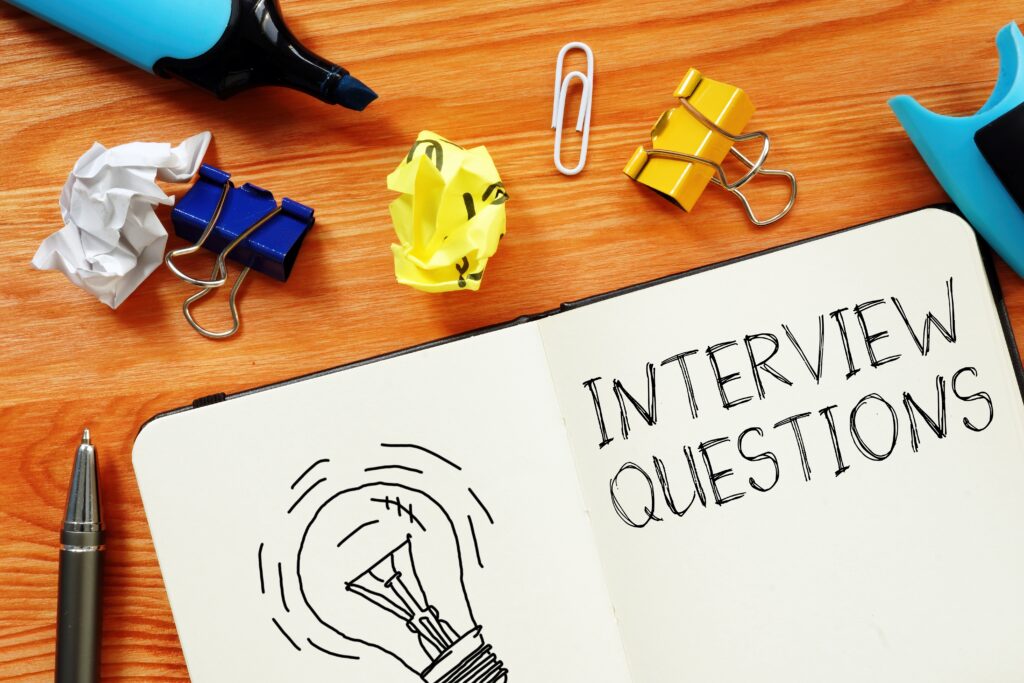Introduction

Business development is a critical function for any organization aiming to grow, expand into new markets, and build long-lasting client relationships. As a Business Development Executive or manager, you are expected to not only understand market dynamics but also demonstrate excellent communication, negotiation, and problem-solving skills.
Interviews for business development roles can be challenging because they assess both technical expertise and interpersonal capabilities. Employers are keen to know how you approach client relationships, close deals, and align your strategies with company objectives.
In this blog, you’ll find the top interview questions frequently asked in business development job interviews along with tips on how to answer them effectively. Whether you’re preparing for your first job or aiming to step up to a senior role, these insights will help you face interviews with confidence and professionalism.
Why Business Development Interviews Are Unique
Unlike other roles where technical knowledge may be the primary focus, business development interviews evaluate:
- Communication and interpersonal skills
- Ability to generate leads and close deals
- Strategic thinking and analytical problem-solving
- Resilience and adaptability under pressure
- Relationship-building and customer focus
Being prepared to showcase examples, discuss your experience, and align your answers with the company’s growth goals can set you apart from other candidates.

Top Interview Questions and How to Answer Them
1. Tell me about yourself.
This is often the first question asked and sets the tone for the rest of the interview. It’s your chance to introduce yourself professionally, focusing on your experience, skills, and passion for business development.
How to Answer:
- Keep it concise (1–2 minutes).
- Focus on relevant experience and achievements.
- End with why you’re interested in the role and how you can contribute.
Example Answer:
“I’ve worked in business development for the last 3 years, primarily in SaaS companies where I was responsible for generating leads, onboarding new clients, and building strategic partnerships. My efforts contributed to a 25% increase in revenue over two years. I enjoy solving problems, analyzing market trends, and building relationships, which is why I’m excited about this opportunity to help your organization expand its market reach.”
2. How do you identify new business opportunities?
This question assesses your approach to market research, lead generation, and client acquisition.
How to Answer:
- Walk through your process: research, customer feedback, competitor analysis.
- Highlight tools like CRM platforms or market reports.
- Mention collaboration with other teams.
Example Answer:
“I start by researching industry trends and studying competitor strategies. I also analyze customer feedback to understand their pain points and needs. From there, I prioritize leads based on potential revenue and alignment with the company’s offerings. Tools like Salesforce and HubSpot help me manage and track leads effectively.”
3. Describe a situation where you successfully closed a difficult deal.
Interviewers want to see how you handle challenges and objections while negotiating.
How to Answer:
- Use the STAR method (Situation, Task, Action, Result).
- Explain the challenge, how you approached it, and the outcome.
- Focus on your communication and problem-solving skills.
Example Answer:
“At my previous job, I was tasked with securing a partnership with a client who had already rejected two proposals. I arranged multiple meetings to understand their concerns, offered tailored solutions, and adjusted our pricing strategy. By aligning our offerings with their specific needs, I closed the deal within a month, resulting in a partnership worth ₹1 Crore.”
4. How do you handle rejection?
Business development involves frequent rejection, so employers are interested in how you maintain motivation and resilience.
How to Answer:
- Acknowledge that rejection is part of the process.
- Explain how you learn from feedback and improve.
- Highlight persistence and adaptability.
Example Answer:
“Rejection is inevitable in business development, and I see it as an opportunity to refine my approach. I always ask for feedback, analyze what went wrong, and adjust my strategy. Over time, I’ve learned to maintain a positive attitude and remain persistent without being discouraged.”
5. How do you build and maintain client relationships?
This question gauges your interpersonal and customer service skills.
How to Answer:
- Discuss communication strategies and trust-building methods.
- Mention follow-ups and long-term engagement.
- Highlight listening skills and personalized solutions.
Example Answer:
“Building relationships starts with listening carefully to the client’s challenges and goals. I ensure regular communication and provide updates on solutions tailored to their needs. By offering consistent support, transparent communication, and timely problem-solving, I’ve been able to maintain client loyalty and foster repeat business.”
6. What role does teamwork play in business development?
Though much of your role may be individual, collaboration is critical.
How to Answer:
- Emphasize how you work with marketing, sales, and product teams.
- Discuss knowledge sharing and cross-functional alignment.
- Mention how teamwork improves client satisfaction.
Example Answer:
“While business development involves working independently on leads, success depends on collaborating with marketing, sales, and product teams. Marketing helps me target the right prospects, sales assists in closing deals, and product teams ensure that client needs are met. Together, we create seamless experiences that benefit both the client and the company.”
7. How do you stay updated on industry trends?
This shows your commitment to continuous learning and market awareness.
How to Answer:
- Mention industry reports, webinars, newsletters, and professional groups.
- Highlight how this information helps your strategy.
Example Answer:
“I subscribe to industry newsletters, participate in webinars, and attend conferences to stay informed about trends and best practices. I also follow competitors and customer feedback to adapt my approach quickly. Staying updated helps me offer solutions that align with evolving market demands.”
8. What metrics do you track in business development?
Employers want to know if you are data-driven and can measure your effectiveness.
How to Answer:
- Discuss KPIs like lead conversion rates, customer acquisition cost, revenue growth, and client retention.
- Explain how you use this data to optimize strategies.
Example Answer:
“I focus on lead conversion rates, client acquisition cost, customer lifetime value, and retention metrics. Tracking these KPIs helps me understand where I need to improve, adjust outreach strategies, and align efforts with overall business goals.”
9. How do you prioritize tasks and manage time in business development?
Time management is critical when dealing with multiple leads and client expectations.
How to Answer:
- Explain tools or methods you use (calendars, CRM workflows, task lists).
- Mention how you balance urgent and strategic activities.
Example Answer:
“I use tools like Trello and CRM platforms to organize tasks by priority. I start my day reviewing lead statuses and scheduling follow-ups while blocking time for strategic planning and research. By balancing urgent tasks with long-term projects, I ensure I meet deadlines without compromising quality.”
10. Why do you want to work in business development?
This question assesses your motivation and cultural fit.
How to Answer:
- Talk about your passion for problem-solving, communication, and helping businesses grow.
- Align your personal goals with the company’s mission.
Example Answer:
“I enjoy problem-solving, analyzing market opportunities, and building relationships that lead to growth. Business development allows me to leverage my communication and analytical skills while helping organizations achieve their objectives. I’m excited about contributing to a team that values innovation and customer-centric strategies.”
Final Tips for Nailing the Interview
- Research the Company: Understand their products, clients, competitors, and recent news.
- Prepare Real Examples: Use data and specific scenarios to back up your claims.
- Practice Soft Skills: Role-play answers with a friend to improve confidence and clarity.
- Ask Insightful Questions: Show curiosity by asking about growth plans, challenges, and expectations.
- Follow Up: Send a thank-you note after the interview, reiterating your interest and enthusiasm.
FAQs
1. What kind of questions should I expect in a business development interview?
You’ll be asked about lead generation, client management, negotiation strategies, and how you handle rejection and challenges.
2. How important is communication in a business development role?
Communication is crucial. A BDE must clearly convey ideas, understand client needs, and build trust through active listening.
3. How can I showcase my problem-solving skills in an interview?
Use examples of past experiences where you addressed a challenge, proposed solutions, and achieved measurable results.
4. Should I prepare specific examples for each question?
Yes. Structured examples using the STAR method (Situation, Task, Action, Result) make your responses more credible and impactful.
5. What are recruiters looking for besides skills?
They want resilience, adaptability, collaboration, and a growth mindset qualities that help you thrive in a dynamic business environment.

